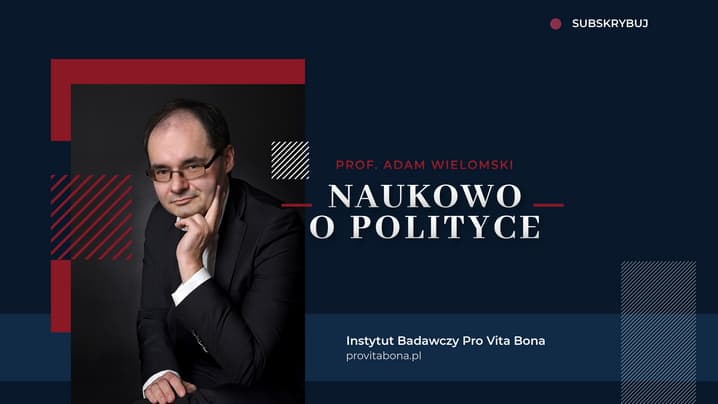In his eulogy for Sam Francis in the Middle American News, Jerry Woodruff tells of Sam’s profound interest in Friedrich Nietzsche. In his office, Sam kept a framed print of his favorite words from Nietzsche given to him by Woodruff. The quotation comes from Die Fröhliche Wissenschaft (“The Gay Science,” today more usually translated as “The Joyful Wisdom” section 283 of book four). Woodruff cites part of the passage, which, he writes, “might provide a fitting epitaph”:
I welcome all signs that a more virile, warlike age is about to begin, which will restore honor to courage above all. For this age shall prepare the way for one yet higher, and it shall gather the strength that this higher age will require one day—the age that will carry heroism into the search for knowledge and that will wage wars for the sake of ideas and their consequences. To this end we now need many prepa- ratory courageous human beings…—human beings who know how to be silent, lonely, resolute, and content and constant in invisible activities;…human beings distinguished as much by cheerfulness, patience, unpretentiousness, and contempt for all great vanities as by magnanimity in victory and forbearance regarding the small vanities of the vanquished;…human beings…accustomed to command with assurance but instantly ready to obey when that is called for—equally proud, equally serving their own cause in both cases, more endangered human beings, more fruitful human beings, happier beings! For believe me: the secret for harvesting from existence the greatest fruitfulness and the greatest enjoyment is—to live dangerously!
Through his total commitment to intellectual and ideological struggle on behalf of the best of Western civilization, Sam Francis found his own way of “living dangerously” or, in the contemporary argot, “living on the edge.” He was masterful in what Nietzsche had called “philosophizing with a hammer.” Yet his books—on the American political philosopher James Burnham and of essays on America’s plight
—offer an insightful and witty perspective comparable to H.L. Mencken. Perhaps one can take comfort for this from the fact that many of Nietzsche’s books were self-published in their initial appearance, in very low print runs, and at first sold only slowly. Despite the various personal difficulties with which Nietzsche’s life was fraught, his work enabled, eventually, an intellectual revolution which can be compared in some respects to those of Copernicus or Darwin, the effects of which effects—for good and for ill—have resounded down each succeeding decade. What is especially interesting about Nietzsche was that he laid bare some of the major implications of what living in late modernity might actually mean for human beings, at a time, the late nineteenth century, when it seemed that white, Western, Christian civilization had reached its highest apogee of power.
Whether Nietzsche was merely a symptom of late modernity, or an active cause of much turmoil—i.e., among the originators of the idea of a “world without lim- its”—as well as to what extent he was the most thoroughly modern (postmodern?) thinker, or the most profoundly anti-modern (postmodern?) critic of late modernity remain matters for lively debate.
Unlike most of the writings of Nietzsche, Sam Francis’s writings were often phrased in the terminology of social science; they also paid more respect to the “old verities” and national and religious traditions. Dr. Francis still embraced the term “paleo-conservatism”—whereas Nietzsche was frequently critical of conservatives and enunciated a sharp, pungent critique of Christianity.
As Sam Francis frequently implied in his many columns, we live in a social and cultural landscape in which what was once approvingly called Western civilization has largely been lobotomized, and its heart virtually cut out—indeed, today it can often appear that virtually everything “high” and “noble” has been crushed and torn down—for all that the modern “transformation of values” has many of its roots in Nietzsche’s thought, and whether he would approve or disapprove of the late modern “nomads.”
Looking at the political implications and strategy of the recent culture wars in a Francis-like fashion, the 1960’s sexual and cultural revolutions and their aftermath may be seen as a watershed development in which, in exchange for the near-total social submission of the majority to minority interests, left-liberalism offered (in theory at least) the superficially seductive, psychologically appealing prospect of an almost total sexual freedom(“sexual liberation”),plus consumerist satisfactions for everyone. As unmasked by Sam Francis, the true rulers of society and its authorized exercisers of unbridled force, lust, and cruelty in the current landscape of North America are, under the aegis of the managerial power elite, the largely ressentiment-driven “minority interests,” the wealthy left-liberal elites, and the counter-cultural left, rather than Nietzsche’s self-confident, aristocratic Nietzschean “overmen.”
Indeed, it could be argued, as Paul Edward Gottfried (a close friend of Francis) has suggested, that the pre-1960s left, including many of the most radical socialists and communists, would have found the central concerns of the post-1960s left and its camp followers puzzling, incoherent, or simply repugnant. Indeed, most of the old-fashioned left (such as Canada’s Co-operative Commonwealth Federation party) considered notions of traditional nation, family, and religion as simply a part of pre-political existence which it had no desire to challenge. The corollary is that, having finally won their hard-fought victory over big-business and the upper classes, the majority’s middle, lower-middle, and working classes (the leadership elements of which Sam Francis—following Donald Warren—called “Middle American Radicals”) have fallen into the thrall of a rising new alliance between the “new-style” managerial-therapeutic state and the arriviste “visible minorities” and other “outcast” groups.
In marked contrast to certain of Nietzsche’s more extreme assertions, Sam Francis believed in a core human nature that was accessible to scientific study and demonstration through the so-called “hard new social sciences”: sociobiology, evolutionary psychology, animal ethology (the comparative study of human and animal behavior), and genetics. In his sharp commentary on the Lawrence Summers scandal, Francis contrasted the “tabula rasa,” environment-über-alles approach of would-be social engineers with what, he acidly noted, should have been the cheering, hopeful news that some part of human nature may actually be beyond the power of these social engineers. According to Sam, it was just that unwelcome reminder to the social engineers that drove the frenetic rage against the Harvard president’s comments.
Nietzsche was far more questioning than Francis of the existence of a core human nature: the import of his notorious words “God is dead” is that humanity can no longer hold any standards to be objectively true. Describing the conceptual chaos unleashed by late modernity, Nietzsche seeks a way out of it by some kind of re-imagining or re-imaging. A profound exploration of the term “a world without boundaries,” or limits, may lead to a deeper understanding of what the main project of left-liberalism is really about. It is the annihilation of what Nietzsche had called “the bounded horizons”— including traditional notions of nation, family, and religion. Although—especially in Nietzsche’s view—a world without limits may create opportunities for the arising of creative “new modes and new orders,” in which the only hope is for “tradition” to be created by conscious political endeavor—it is also full of the dangers of falling into a dystopia along the lines of the post-historical technocracy so eerily evoked (in 1932) in Aldous Huxley’s Brave New World. In the more politically practical thought of Sam Francis, it is the “Middle American Radicals” who will be the vanguard of a national, cultural, and spiritual restoration in America.
In the aftermath of World War II, some have considered Nazism to have been virtually a direct outflow of Nietzsche’s thought—and hence endeavored to consign the thinker to infamy. It could be argued that the ever intensifying memorialization of the rise, onward march, and downfall of Nazism—now claimed by many in the opinion-forming elites to have emerged from the central traditions of white, Western, Christian civilization—has had the unfortunate collateral effect of making the defense of rootedness and excellence ever more difficult in the post-1960s period. Ironically, there is today less and less understanding of the real history of that earlier era, as exemplified in the curious downplaying of the vast extent of Nazi Germany’s evil against Slavic countries and peoples, and in the exculpation of the role played by Communism and Stalin in the rise of Nazi Germany. Nietzsche himself would have likely dismissed the entire Nazi phenomenon as a tendency that fed from uncontrolled and engorged “slave resentments”—and thus quite prone to indulge in cruel and vicious acts against its opponents. Nazism was plainly “ignoble” and “without honor”; however ferocious Sam’s writing may have appeared to some, there was clearly a core of civility, decency, and a high degree of reflection behind it.
Communitarian and traditionalist conservative philosophy today is often approached in a fashion seen, for example, in Stephen Holmes’s The Anatomy of Anti-liberalism (Harvard University Press, 1993). Holmes’s approach is little more than a reductio ad Hitlerum. It cannot be denied, however, that the interwar trends of fascism and Nazism have subsequently been exploited to potentially devastating effect for the future of the West. The post-1960s period has seen an attempt to create circumstances conducive to casting all varieties of rooted European nationalism, traditional Christianity, and Western community spirit into the dustbin of history along with the manifest excrescence of Nazism. It could be argued that contemporary communitarianism, as well as traditionalist conservative philosophy, actually represent a quiet, desperate plea to recover some minimal aspects of social existence, virtually all of which have been lost in the pell-mell rush to the hyperliberal, hypercapitalist, hypermodern, “Brave” New World. Thus Holmes’s critique is clearly an infelicitous one, seen against the backdrop of the current-day context of late North American modernity.
In their obsessing over Nazi evil, many people have forgotten the lesson that evil may often reappear, under totally different auspices, in a different period of history. As J.R.R. Tolkien put it, “for evil always takes on another shape, and grows again.” It is the most proximate, current-day evil that Sam Francis most strongly stood against. What critics such as Paul Gottfried have called the “managerial-therapeutic regime” today maintains its hegemony through massive instrumentalities such as the mass media, the mass education system, and a vast state, as well as corporate, apparatus.
To consider, for example, my country, Canada through a Burnham/ Francis analysis lens, it can be seen that today there are probably close to a million, often highly remunerative, positions concerned directly with the maintenance of the ideological hegemony of the managerial-therapeutic state. To take only one example (from the 1990s) of so many available, the annual budget of the National Action Committee on the Status of Women, the main feminist lobby group, was provided almost entirely out of taxpayers’ money. It was roughly comparable to the annual budget of the broadly right-wing Reform Party of Canada, which the Reform Party had to honestly compete for in the public arena. In the late 1990s, during the HRDC (Human Resources Development Canada) scandal, it was alleged that over a billion dollars (Canadian) of public money had gone into the private coffers of prominent Liberal Party members. It is only now that another scandal, wherein over
$100 million (Canadian) of public money went to a handful of prominent Liberals, finally threatens to bring down the federal Liberal government. The resources available to left-liberals thus outweigh those of the right wing by astronomical factors—making a mockery of parliamentary and democratic principles, and of the notion of a free exchange of ideas.
If the big business and corporate world is correctly understood to be, in the overwhelming majority of cases, highly inimical and subversive to social conser- vatism, then traditionalism’s position in many Western societies might seem all but hopeless.
It could also be pointed out that the “needs” (claims) of minorities vis-à-vis the majority are seemingly unlimited. If Donovan Bailey, “the world’s fastest man” (whose visage, for example, has been featured on every box of Kellogg’s Corn Flakes in Canada as part of an endorsement for which he has received several million dollars), can express a sense of victimization, then how much more apparently legitimate are the claims of minorities who are living in some measure of genuine poverty?
It could be acerbically argued that today’s Canada has been reconstructed to serve the virtually unrestricted, unlimited elevation, preferment, and unqualified exaltation of “recognized minorities” in virtually every sphere of societal endeavor.
Indeed, the more aggressive minority and Third World leaderships seem to be saying to European countries, what’s yours is to become mine, and what’s mine stays mine. Is it possible to evade the conclusion that demographics is destiny? Today it could appear that for Western peoples the day when the evidently unrelenting pressures of immigration and multiculturalism will somehow be contained, and their own elites be forced to cease the ongoing self-effacement of the West, is only a dream.
Seen through the glass of the elite- and minority-controlled mass media, it can seem that the overwhelming majority of our young people—our future—are utterly deracinated—intellectually, morally, culturally, and ethnically. It can appear that whatever intellectual acuity they possess is largely deployed in sniffing out and suppressing “political incorrectness” in all its variegated forms (in others and in themselves).
Yet those who wish to implicate Nietzsche in the late-modern project seem to ignore his obvious preference for the truly aristocratic in all forms of life and thought, his utter contempt for the Last Man—that homunculus of plastic corporate and communist materialism that he foresaw in his visionary Also Sprach Zarathustra—in their strained focus on Nietzsche’s epistemology, rather than his ethics.
Indeed, Nietzsche’s radical perspective could be interpreted as an attempt to redeem and re-nourish a transformed idea of the classical μεγαλόψυχος (megalopsychos: “great-souled man”), transmogrified in response to, and in order to confront, the extraordinarily harsh terrain of late modernity, in order to nurture and let flourish great-souled men.
Nietzsche would also probably argue that the problem of the evolution of technology, past a certain point, is not that it makes human beings into “masterful conquerors,” but rather into comfort-addicted, “fitness”-crazed, “health”-obsessed Last Men, dancing in velvet chains.
One might then pose the critical question: On behalf of which project is Nietzschean irrationalism to be deployed today: cultivating nature’s aristocracy—or foddering minority resentments?
It can also be seen that conservative critics of Nietzsche who, inspired by the abstract universal aspects of Greek philosophy, are the upholders of classical “liberal arts,” simply ignore many of the aristocratic aspects of “liberal education”—aspects they generally tremble to own up to. Thus in his often insightful defense of liberal education, Values Education and Technology: The Ideology of Dispossession (University of Toronto Press, 1995), classicist Peter C. Emberley endeavors to lay much of the blame for the errors of late modern educational theorizing precisely on Nietzsche’s thought. The fairly common left-wing interpretation of Nietzsche as a “do-your-own-thing” postmodernist and critic of traditional Christian morality is similarly one-sided.
It could be argued out that “liberal education,” in its etymological root (i.e., as that befitting truly free men), had a sociopolitical dimension, which was simply something which gave “polish” to true gentlemen, schooling them in how to properly relate to their social peers, superiors, and inferiors. It implied the teaching and inculcation of character, the nourishing of patriotism, and the upholding of meaningful rank-orderings. The “reactionary” aspects of “liberal education” are obviously ferociously denounced by left-liberal educationists, but they have also been deliberately washed out or downplayed by many of the purported defenders of liberal education today.
Some of the ultimate origins of Sam Francis’s refined political thought lie in James Burnham, and in those thinkers—such as Vilfredo Pareto—whom Burnham identified and explicated in his famous book The Machiavellians: Defenders of Freedom. Further back in political history, they would trace to Thomas Hobbes, and, of course, Niccolo Machiavelli himself—who are to be read as sharp, practical-minded, monarchist or republican patriots.
The views propounded by such figures as James Burnham and Sam Francis can be stark, but bracing. From the straightforward position of Hobbesian hard realism, European and European-descended societies need not seek the permission of philosophes, savants, clerks, or multiculturalists in fighting for their existence. (Every society may strive to undertake efforts for its self-preservation—and define their own criteria for membership.) Sam Francis has, without too many specifics, suggested the calling forth of hard new elites that will break asunder the current managerial-therapeutic regime. Either they will succeed (to a greater or lesser extent) or be swept away into the garbage can of history. Presumably, all subsequent academic theorizing will be readjusted to reflect the result of this world-historical conflict, with no mercy likely to be shown for the losers. So it always was, and so it always will be.
Mark Wegierski



